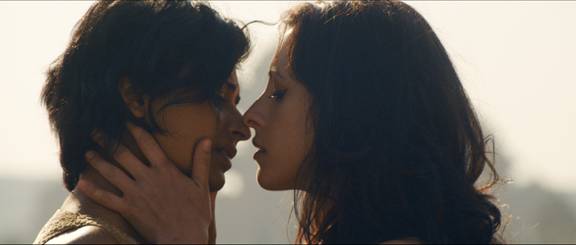
This is a recent interview I did with the director raj Amit Kumar, whose film Unfreedom has been banned in India. The film opened yesterday in the U.S., in New York and Los Angeles. It has also been released on iTunes.
As an artist, as a creative person, and knowing how volatile things can unexpectedly get in India (sometimes as the result of a seemingly innocuous action or choice of words), how do you create something – in this case your film Unfreedom or anything else you would create – and not self-censor yourself?
raj Amit Kumar: I don’t know which “volatility” you are talking about. How is India unexpectedly volatile? What is making it volatile? Are you asking me, how can I not be scared of those who make it volatile? Or you really think general public of India has nothing else to do but watch a film or read a book and go violent and volatile?
As I read your question it seems to me you are asking that how can we filmmakers make a film and not self-censor ourselves when we know that these violent forces in India exist and they can use that for more violence. My answer is, today it is all the more important that we do not self-censor, and speak and shout against these violent forces. We need to do that by not giving in to their agenda of shutting up writers, artists, and filmmakers who speak about subjects that reveal their naked lies. I guess you hit the main point by using the word “Self-Censorship”. The whole purpose of censorship is to create a society that can self-censor itself against touching on certain subjects and against addressing them in a way that is not kosher to the “volatile forces”, i.e. the ruling class ideology and its violent enforcers.
Would you talk about the casting? Was it difficult to find your two female leads, knowing that there was nudity involved? Similar question regarding Adil Hussain and Victor Banerjee – did they express any qualms about the political and sexual nature of the film prior to signing up for it?
It sure was difficult. A few more popular Indian actresses were willing to do the role but they would not agree to the nudity and depiction of sexuality and violence in the film. And quite a few actresses who were all for it did not know how to act. It was a tough task to find actresses in India to have an acting ability of highest calibre and not have a challenge with nudity. They all worry – and realistically so – that their career options in Indian cinema would be limited.
I was asked questions such as, “Show me one Indian director who has done nudity and it is either watchable or makes sense?” And I had no other answer but, “There is always a first. Try to trust me.” Again part of major problem is censorship in India that does not allow nudity on screen, and hence, filmmakers and actors “self-censor” themselves knowing what the limitations are. It is a very brave decision by my actresses Preiti Gupta and Bhavani Lee.

Adil and Victor are veterans and believe the purpose of art is to open new boundaries and ask tough questions. They never had an issue. And they are also not actors who meddle with a director’s vision. However, other popular Indian actors I had approached for roles had issues with the political, sexual and violent nature of the film.
I’d love to hear more about Victor Banerjee and how it is as a director to work with him? Also, why did you choose him in particular for this role?
Victor Da has worked with likes of David Lean, Satyajit Ray, Mrinal Sen. I did not imagine that this man would be so humble, down to earth, passionate, and most professional on the set. On top, we made this film with very less resources, as is the case with most first time filmmakers. He did not charge anything for the film. He read the script and fell in love with it. I have highest regards for him. I chose him because he exudes a strong personality that has weight and that can defeat you without use of words and just by its on-screen presence. That is exactly my non-violent Fareed character.
Finally, have you found any unexpected advocates who’ve come forward to support you and the film?
I imagined more people will hate the film for what it says and how it says. It is unexpected that quite a lot of audience is passionately falling in love with it for what it stands for.
